Treatment
Both medications and lifestyle adjustments can help to address symptoms and prevent disease worsening.3 Each person's condition and treatment options is different. You and your healthcare team should work together to create a treatment plan customized for you.
Medications
Inhalers are the most common form of medications for COPD. They can be broadly categorised into 2 types: Maintenance & Rescue Inhalers. These may be prescribed to you via a dry-powder inhaler, metered-dose inhaler or a soft-mist inhaler. Depending on your ability to use these devices, you may be prescribed a spacer or a nebulizer as well.
Maintenance
Maintenance inhalers are daily treatments prescribed to help prevent and reduce your symptoms, improve lung function, quality of life, and prevent COPD flare-ups.3 Some medications can also prolong life expectancy.3 It is important to take your maintenance medicine everyday, even if you feel fine.

Rescue
Rescue inhalers should be taken when you have symptoms. They contain fast-acting bronchodilator(s) that open up your airways quickly so that you get immediate relief from symptoms.10 How often you use it depends on your individual condition.

Bronchodilators*,3
Bronchodilators make breathing easier by relaxing and opening your airways. They may be either short-acting or long-acting.
(e.g. SABA, SAMA)
(e.g. LABA, LAMA)
Types of Bronchodilators
- Beta2-receptor agonists (β2 agonists) keep the airways open by helping to relax the muscles around the airways.
- Muscarinic antagonists (also known as anticholinergics) keep the airways open by preventing the tightening of airway muscles, and helping to clear mucus from the lungs.
LABA: long-acting beta2-agonist; LAMA: long-acting muscarinic antagonist; SABA: short-acting beta2-agonist; SAMA: short-acting muscarinic antagonist
Inhaled Corticosteroids*,3
Inhaled Corticosteroids (ICS) help to reduce inflammation, swelling, and mucus in the airways. When used in COPD, they should be prescribed in combination with other bronchodilators (e.g. LAMA, LABA).
Not all COPD patients will be prescribed with an ICS. They may be especially helpful if you are at higher risk of COPD flare-ups, have a high blood eosinophil count, or have both COPD and asthma.
Combination Inhalers*,3
COPD patients are often prescribed with more than 1 inhaled medicine. These may be prescribed as:
- Multiple, separate inhalers, OR
- A single combination inhaler
Some examples of Combination Inhalers are:
+ SAMA
+ LAMA
+ LABA
+ LABA
+ LAMA
A combination inhaler can help to simplify your medication routine and reduce the number of inhalations you need to take daily. Speak to your doctor if you would prefer to take a combination inhaler instead of multiple, separate inhalers.
Check Your Inhaler Technique
Every inhaler requires a different technique. Your doctor will be able to select an inhaler device that is suitable for you. To obtain the most benefit from your inhaler, you would need to ensure that you are using it correctly.
Other Medications*,3
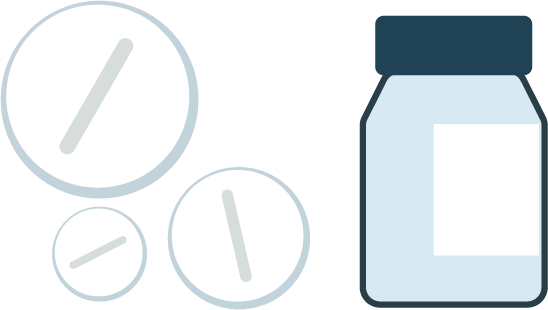
Steroid pills and antibiotics are often used short-term to treat COPD flare-ups. You may be given these as standby medication to be used only when you are experiencing a COPD flare-up.
It is important to let your doctor know when you have taken these medications to help manage your symptoms, so that your doctor can assess whether your prescribed treatment is sufficient.
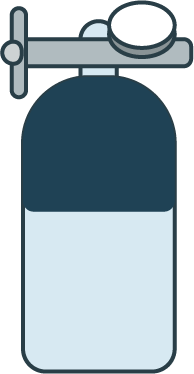
Oxygen therapy may be prescribed for severe COPD if your lungs are unable to supply enough oxygen to meet your body’s needs. This may be given to you either long-term or only for short periods to manage your flare-ups.
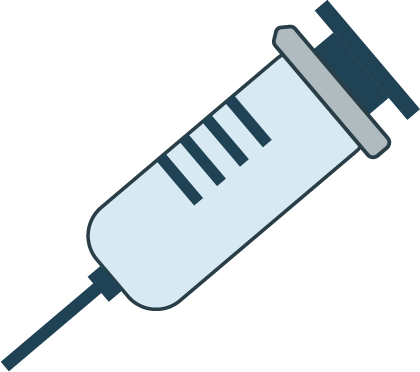
Vaccinations may also be recommended. Patients with COPD are at higher risk of serious complications with infections like COVID-19 or the flu. Vaccines can help to prevent you from getting sick from these infections.
It is recommended that you keep up to date with the following vaccinations:
- Yearly flu vaccine
- Pneumonia vaccine
- COVID-19 vaccine, including the latest boosters
- Respiratory syncytial virus (RSV) vaccine
*The list of COPD medications provided on this website is not exhaustive and includes only the most common medications used in COPD. You may have been prescribed other medications for COPD that are not included in this list. It is important to follow the instructions given to you by your healthcare provider regarding your specific treatment plan.
ICS: inhaled corticosteroid; LABA: long-acting beta2-agonist; LAMA: long-acting muscarinic antagonist; SABA: short-acting beta2-agonist; SAMA: short-acting muscarinic antagonist.
References:
- Diab N, et al. Am J Respir Crit Care Med 2018;198:1130–1139.
- Global Initiative for Chronic Obstructive Lung Disease (GOLD) Patients and Advocacy Groups. Available at: https://goldcopd.org/patients-advocacy-groups/. Accessed on 1 July 2024
- Global Initiative for Chronic Obstructive Lung Disease (GOLD). Global strategy for the diagnosis, management, and prevention of COPD 2024 report. Available at: https://goldcopd.org/2024-gold-report/. Accessed on 14 November 2024
- Fletcher C, et al. Br Med J. 1977 Jun 25;1(6077):1645-8.
- Agusti A, et al. Lancet Respir Med. 2019 Apr;7(4):358-364.
- Melén E, et al. Lancet. 2024;403(10435):1494-1503.
- Choi JY, et al.. J Clin Med. 2020 Oct 26;9(11):3426.
- Healthline. What to Know About a Spirometry Test. Available at: https://www.healthline.com/health/spirometry. Accessed on 10 July 2024.
- Saunders MJ, et al. Chest. 2021 Oct;160(4):1241-1244.
- World Health Organisation (WHO). Chronic obstructive pulmonary disease (COPD). Available at: https://www.who.int/news-room/fact-sheets/detail/chronic-obstructive-pulmonary-disease-(copd). Accessed on 30 May 2024.
- Piquet J, et al. Eur Respir J. 2013;42(4):946-955.
- Ho T-W, et al. PLoS One. 2014;9(12):e114866
- Donaldson GC, et al. Chest. 2010;137(5):1091-1097.
- Lareau S, et al. Am J Respir Crit Care Med. 2018;198:21-22
- U.S Centres for Disease Control and Prevention (CDC). Smoking and Tobacco Use; Benefits of Quitting Smoking. Available at: https://www.cdc.gov/tobacco/about/benefits-of-quitting.html. Accessed on 1 June 2024.
Managing a Flare-up
Flare-ups (also called exacerbations) can make COPD worse in the long term. They are usually caused by an infection. Flare-ups can lead to other complications and may cause patients to spend more time in hospital.11-13 Recognising the early signs of a flare-up can help you and your doctor manage them correctly.
Common signs & symptoms of a flare-up14:
- Worsening breathlessness
- Worsening cough
- Changes in the colour and amount of mucus or phlegm from your cough
- More tired than usual
- Difficulty sleeping, or feeling confused
- If you measure your oxygen levels using a pulse oximeter, you may notice a sudden decrease in oxygen levels
doctor know
If you experience a flare-up, follow the treatment plan prescribed by your doctor.
This may include3:
- Increased use of rescue inhaler
- Using a course of antibiotics (if the flare-up was due to a bacterial infection). Complete the full course, even if you feel better.
- A course of steroid pills
- Visiting the doctor or Emergency Department if your condition is getting worse
*The list of COPD medications provided on this website is not exhaustive and includes only the most common medications used in COPD. You may have been prescribed other medications for COPD that are not included in this list. It is important to follow the instructions given to you by your healthcare provider regarding your specific treatment plan.
ICS: inhaled corticosteroid; LABA: long-acting beta2-agonist; LAMA: long-acting muscarinic antagonist; SABA: short-acting beta2-agonist; SAMA: short-acting muscarinic antagonist.
References:
- Diab N, et al. Am J Respir Crit Care Med 2018;198:1130–1139.
- Global Initiative for Chronic Obstructive Lung Disease (GOLD) Patients and Advocacy Groups. Available at: https://goldcopd.org/patients-advocacy-groups/. Accessed on 1 July 2024
- Global Initiative for Chronic Obstructive Lung Disease (GOLD). Global strategy for the diagnosis, management, and prevention of COPD 2024 report. Available at: https://goldcopd.org/2024-gold-report/. Accessed on 14 November 2024
- Fletcher C, et al. Br Med J. 1977 Jun 25;1(6077):1645-8.
- Agusti A, et al. Lancet Respir Med. 2019 Apr;7(4):358-364.
- Melén E, et al. Lancet. 2024;403(10435):1494-1503.
- Choi JY, et al.. J Clin Med. 2020 Oct 26;9(11):3426.
- Healthline. What to Know About a Spirometry Test. Available at: https://www.healthline.com/health/spirometry. Accessed on 10 July 2024.
- Saunders MJ, et al. Chest. 2021 Oct;160(4):1241-1244.
- World Health Organisation (WHO). Chronic obstructive pulmonary disease (COPD). Available at: https://www.who.int/news-room/fact-sheets/detail/chronic-obstructive-pulmonary-disease-(copd). Accessed on 30 May 2024.
- Piquet J, et al. Eur Respir J. 2013;42(4):946-955.
- Ho T-W, et al. PLoS One. 2014;9(12):e114866
- Donaldson GC, et al. Chest. 2010;137(5):1091-1097.
- Lareau S, et al. Am J Respir Crit Care Med. 2018;198:21-22
- U.S Centres for Disease Control and Prevention (CDC). Smoking and Tobacco Use; Benefits of Quitting Smoking. Available at: https://www.cdc.gov/tobacco/about/benefits-of-quitting.html. Accessed on 1 June 2024.
Lifestyle Management
As COPD is an illness that can affect not just your lungs but the entire body, proper treatment should aim to improve your general well-being and health status, rather than focusing only on preserving your lung function. Besides medication that can help you breathe better, other aspects such as proper nutrition, relaxation, regular exercise and maintaining a positive outlook towards the condition are equally important.2
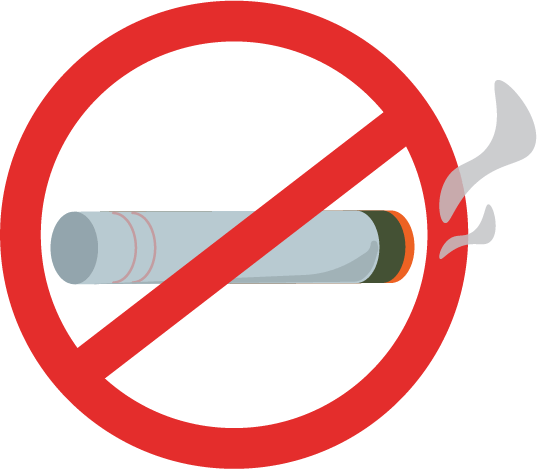
Quit Smoking
This is the single most effective method to slow the progression of COPD.2 It is never too late to quit – even if you have been smoking for many years, quitting can still help. Quitting smoking at any age reduces the risk of early death, and is associated with a higher quality of life and fewer illnesses like the flu.15
Consult your doctor or pharmacist who may be able to provide you with tools such as medical therapy and direct you to support groups to help you in your journey to quit smoking.
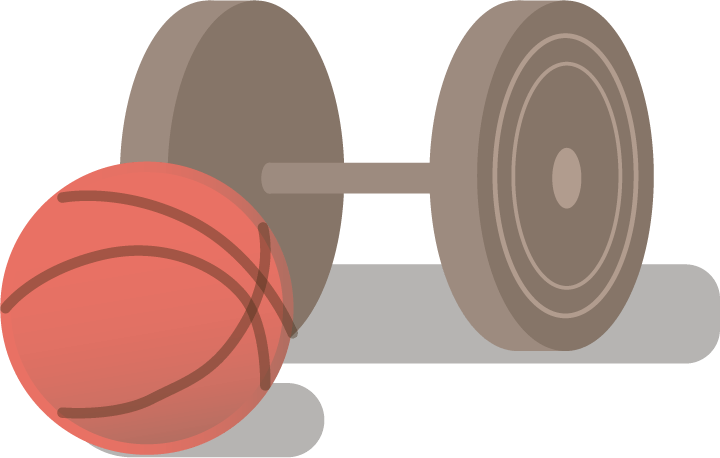
Exercise Regularly
Many people suffering from COPD avoid exercising because of the fear of getting breathless. However, exercising has been shown to reduce COPD symptoms.3 It can help your body train to utilize oxygen better, and reduce the load on your heart and lungs.
Talk to your doctor before starting an exercise program to identify the best approach for you.
Types of Exercises
Watch Your Nutrition
Maintaining a healthy weight can help to reduce the load on your heart and lungs. Weight loss and malnutrition may also develop as COPD progresses. This may lead to worsening lung function, increased hospitalisations, and increased risk of death.3
Speak with your doctor or dietician to discuss ways to plan and prepare nutritionally balanced meals.

Pulmonary Rehabilitation
Pulmonary rehabilitation is a supervised medical program that teaches you about your disease, specific breathing techniques, exercise training, nutritional and psychological counselling.
Patients at all COPD severities can benefit from pulmonary rehabilitation. It has been shown to be effective in improving shortness of breath, health status and exercise tolerance.3
Speak to your doctor to assess if you will be suitable for a referral to a pulmonary rehabilitation program.
Learn more*The list of COPD medications provided on this website is not exhaustive and includes only the most common medications used in COPD. You may have been prescribed other medications for COPD that are not included in this list. It is important to follow the instructions given to you by your healthcare provider regarding your specific treatment plan.
ICS: inhaled corticosteroid; LABA: long-acting beta2-agonist; LAMA: long-acting muscarinic antagonist; SABA: short-acting beta2-agonist; SAMA: short-acting muscarinic antagonist.
References:
- Diab N, et al. Am J Respir Crit Care Med 2018;198:1130–1139.
- Global Initiative for Chronic Obstructive Lung Disease (GOLD) Patients and Advocacy Groups. Available at: https://goldcopd.org/patients-advocacy-groups/. Accessed on 1 July 2024
- Global Initiative for Chronic Obstructive Lung Disease (GOLD). Global strategy for the diagnosis, management, and prevention of COPD 2024 report. Available at: https://goldcopd.org/2024-gold-report/. Accessed on 14 November 2024
- Fletcher C, et al. Br Med J. 1977 Jun 25;1(6077):1645-8.
- Agusti A, et al. Lancet Respir Med. 2019 Apr;7(4):358-364.
- Melén E, et al. Lancet. 2024;403(10435):1494-1503.
- Choi JY, et al.. J Clin Med. 2020 Oct 26;9(11):3426.
- Healthline. What to Know About a Spirometry Test. Available at: https://www.healthline.com/health/spirometry. Accessed on 10 July 2024.
- Saunders MJ, et al. Chest. 2021 Oct;160(4):1241-1244.
- World Health Organisation (WHO). Chronic obstructive pulmonary disease (COPD). Available at: https://www.who.int/news-room/fact-sheets/detail/chronic-obstructive-pulmonary-disease-(copd). Accessed on 30 May 2024.
- Piquet J, et al. Eur Respir J. 2013;42(4):946-955.
- Ho T-W, et al. PLoS One. 2014;9(12):e114866
- Donaldson GC, et al. Chest. 2010;137(5):1091-1097.
- Lareau S, et al. Am J Respir Crit Care Med. 2018;198:21-22
- U.S Centres for Disease Control and Prevention (CDC). Smoking and Tobacco Use; Benefits of Quitting Smoking. Available at: https://www.cdc.gov/tobacco/about/benefits-of-quitting.html. Accessed on 1 June 2024.



